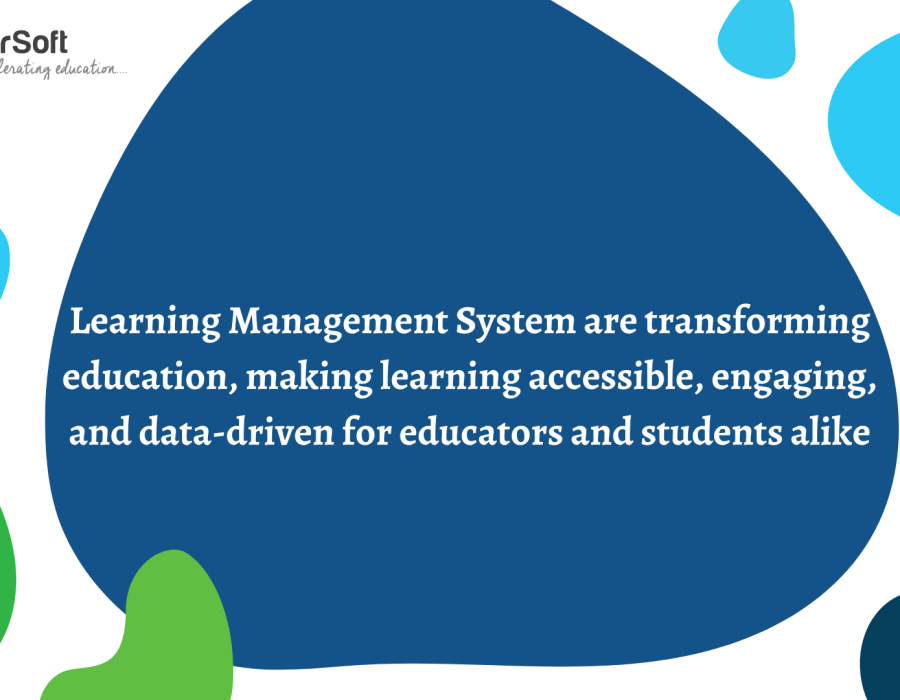The role of educators has never been more demanding. They are tasked with fostering a love of learning, imparting crucial knowledge, and preparing students for success in a rapidly evolving world. While a teacher's passion and dedication are irreplaceable, innovative tools can significantly enhance the teaching experience. Enter Learning Management System (LMS). These digital platforms are transforming classrooms by empowering educators and fostering a more dynamic and engaging learning environment. Let's explore how LMS empowers educators and revolutionizes teaching practices.
From Textbooks to Tech-Savvy Classrooms: How LMS Benefits Educators
LMS offers a multitude of functionalities that streamline workflows, personalize learning experiences, and ultimately empower educators to become more effective facilitators of knowledge. Here are some key benefits:
- Effortless Content Creation and Delivery: LMS platforms allow educators to easily develop and deliver engaging course content. They can integrate multimedia elements like videos, audio recordings, presentations, and interactive quizzes into their lessons, catering to diverse learning styles.
- Streamlined Assessment and Feedback: LMS offers a variety of tools for creating and administering online assessments, including quizzes, assignments, and discussions. The system can automate grading and provide instant feedback to students, allowing educators to focus on providing personalized guidance.
- Enhanced Communication and Collaboration: LMS fosters communication and collaboration within the classroom. Students can participate in online discussions, forums, and group projects, fostering teamwork and critical communication skills. Educators can also use the platform to send announcements, share resources, and provide individual feedback to students.
- Personalized Learning Opportunities: Some LMS platforms offer features for creating personalized learning paths. Educators can leverage student data and performance to tailor learning activities and resources to individual needs and learning styles. This ensures all students are challenged and supported appropriately.
- Improved Organization and Time Management: LMS acts as a central hub for all course materials, assignments, deadlines, and communication. This streamlines organization for educators, freeing up valuable time for lesson planning, professional development, and student interaction.
- Valuable Data and Analytics: LMS tracks student activity and performance data. Educators can leverage this data to identify areas where students might be struggling and adapt their teaching strategies accordingly.
- Accessibility and Flexibility: LMS allows students to access learning materials and complete assignments anytime, anywhere. This caters to students with busy schedules or those who require remote learning options. It also allows educators to create flexible learning environments that cater to diverse student needs.
- Collaboration with Colleagues: Some LMS platforms offer features that allow educators to share best practices, resources, and lesson plans with colleagues. This fosters collaboration within a school or district, promoting continuous improvement in teaching methods.
Beyond the Basics: Advanced Features of LMS
Modern LMS solutions offer a plethora of advanced features that further empower educators:
- Gamification: LMS can incorporate game mechanics like points, badges, and leaderboards to enhance student engagement and motivation.
- Automating Administrative Tasks: Features like automated grading, plagiarism checkers, and attendance tracking can significantly reduce administrative burden for educators.
- Mobile App Accessibility: Mobile app access allows educators to manage their courses, monitor student progress, and communicate with students on the go.
- Integration with External Tools: LMS can integrate with other educational technology tools, such as plagiarism checkers, rubrics creation platforms, and online polls, further enhancing the learning experience.
Choosing the Right LMS for Your Needs
With a vast array of LMS solutions available, selecting the system that aligns with your teaching style and school's needs is crucial. Here are some factors to consider:
- Size and Complexity of Your School: Choose a system that scales to accommodate the number of educators and students that will be using it.
- Features and Functionality: Identify the functionalities that are most important to you, such as content creation tools, assessment capabilities, collaboration features, and mobile access.
- Ease of Use: The LMS should be user-friendly for both educators and students. Consider factors like interface design, training requirements, and customer support.
- Budget: LMS solutions come with varying costs. Determine your budget and choose a system that offers value for money.
- Security: Ensure the LMS prioritizes data security with robust encryption and access control measures to protect student information.
The Future of Teaching is Tech-Enabled
Learning Management Systems are not just a fad; they're a powerful tool shaping the future of education. By empowering educators with technology, we can create a more dynamic, engaging, and personalized learning environment for all students. As technology continues to evolve, we can expect even more innovative features in LMS, further transforming the way we teach and learn.





Comments